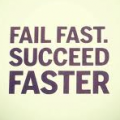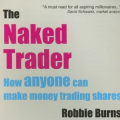What is a Routine?
A daily routine for most people is the ritual of getting up and getting ready for the day. But for others, for people like you and me, your routine can be an opportunity to increase you productivity levels; a series of repeated actions that continually add to your day. If you have a successful routine, chances are you’ll have a successful mindset and a successful day ahead.
How can a Routine help you?
A routine keeps you focused. If you’re doing the same things, repeatedly, less time will be wasted between tasks and that time will build up. And this build up can make a huge difference to how happy, healthy and productive you are.
And it’s always good to start in the morning. If you wait until the end of the day to do meaningful but not urgent things like exercise it probably won’t happen. But just waking up that little bit earlier, that small change can make a big difference.
The Routines and Rituals of Highly Successful People
As always, the best inspiration comes from past successes. As self-developers, we can use other people’s successes and failures to craft our own. So here are the routines and rituals of five highly successful people.
1) Stephen King (Best-Selling Fiction Author)
 “I have a glass of water or a cup of tea. There’s a certain time I sit down, from 8:00 to 8:30, somewhere within that half hour every morning. I have my vitamin pill and my music, sit in the same seat, and the papers are all arranged in the same places. The cumulative purpose of doing these things the same way every day seems to be a way of saying to the mind, you’re going to be dreaming soon.”
“I have a glass of water or a cup of tea. There’s a certain time I sit down, from 8:00 to 8:30, somewhere within that half hour every morning. I have my vitamin pill and my music, sit in the same seat, and the papers are all arranged in the same places. The cumulative purpose of doing these things the same way every day seems to be a way of saying to the mind, you’re going to be dreaming soon.”
Getting into the mindset is a very important aspect of routine, particularly for the creative individual. Before getting to work, it’s a good idea to have a certain routine before hand (whether that’s getting a cup of tea or going for a walk) that gets your mind prepared for the task ahead. Sometimes these few minutes can really make a big difference, particularly when they’re placed between two existing tasks.
For more: Stephen King – The Man Behind the Misery
2) Evan Williams (Founder of Twitter)
 “I used to go to the gym first thing in the morning. Exercise is, of course, great for energy levels and I believe it makes me more productive no matter what. But energy and focus naturally ebb and flow through-out the day.” “My focus is usually great first thing in the morning, so going to the gym first is a trade of very productive time.”
“I used to go to the gym first thing in the morning. Exercise is, of course, great for energy levels and I believe it makes me more productive no matter what. But energy and focus naturally ebb and flow through-out the day.” “My focus is usually great first thing in the morning, so going to the gym first is a trade of very productive time.”
After taking note of his personal energy fluctuations, Williams learnt that he could improve his daily routine. And this is important when constructing your own; to take listen and take note of your inner body clock, understand how your energy fluctuations affect your productivity and make regular changes to your routine that means you’ll be able to be at your most productive when you need to be. Evan now takes the middle of the day out of the office to visit the gym.
3) Haruki Murakami (Best-Selling Fiction Author)
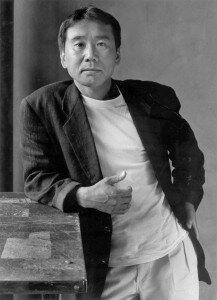 “When I’m in writing mode for a novel, I get up at 4:00 am and work for five to six hours. In the afternoon, I run for 10km or swim for 1500m (or do both), then I read a bit and listen to some music. I go to bed at 9:00 pm. I keep to this routine every day without variation. The repetition itself becomes the important thing; it’s a form of mesmerism. I mesmerize myself to reach a deeper state of mind. But to hold to such repetition for so long — six months to a year — requires a good amount of mental and physical strength. In that sense, writing a long novel is like survival training. Physical strength is as necessary as artistic sensitivity.”
“When I’m in writing mode for a novel, I get up at 4:00 am and work for five to six hours. In the afternoon, I run for 10km or swim for 1500m (or do both), then I read a bit and listen to some music. I go to bed at 9:00 pm. I keep to this routine every day without variation. The repetition itself becomes the important thing; it’s a form of mesmerism. I mesmerize myself to reach a deeper state of mind. But to hold to such repetition for so long — six months to a year — requires a good amount of mental and physical strength. In that sense, writing a long novel is like survival training. Physical strength is as necessary as artistic sensitivity.”
Stick to your routine. If a routine is a ritual, then it is repeated. If you allow anything to displace this, you are allowing something to displace your dreams and hope and desires… your success. Part of designing a routine, is sticking to it so whilst you’re creating it make sure you can stick to it. Eventually, when repeated enough times, success will become a second nature.
4) Jack Dorsey (Twitter & Square Co-Founder)
In order to stay productive and continually put in 16 hour work days – yes, you heard correctly – into his business Dorsey themes his day according to a certain task.
 “All my days are themed. Monday is management. At Square we have a directional meeting; at Twitter we have our opcomm meeting. Tuesday is product engineering and design. Wednesday is marketing, growth and communications. Thursday is partnership and developers. Friday is company and culture.”
“All my days are themed. Monday is management. At Square we have a directional meeting; at Twitter we have our opcomm meeting. Tuesday is product engineering and design. Wednesday is marketing, growth and communications. Thursday is partnership and developers. Friday is company and culture.”
Now I’m not saying you should be working a sixty hour week, unless your googling yourself chances are your not the co-founder of Twitter after all. But this method can applied to smaller scale productivity such as exam revision or product creation particularly if you are your own boss. If you’d like to test this, simply list out your major tasks, and divide them up between days. And if you’re like me and you like a flexible day, try working in themed hours. Give it a try.
5) Winston Churchill (British British Prime Minister during WWII)
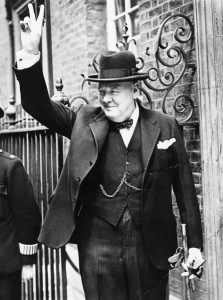 Winston famously worked from his bed. Here he would wake up at around 7:30 am,
Winston famously worked from his bed. Here he would wake up at around 7:30 am,
Have breakfast, read mail, read newspapers and dictate secretaries until 11am when he would shower and walk the gardens. At around midday he would have dinner with family, work until 5pm, have a long nap and again meet family for dinner at 8pm before studying for a further hour.
This flexibility and variety is admirable because it not only considers time for family and friends but for walking the gardens and having a nap. I guess what’s to be taken from this routine is that, you should take care of yourself. To optimise productivity, you can’t be tired or bored or frustrated by what you’re doing. Ensure your taking breaks between each task and making the most out of your time.
Forming your own Routine…
So after looking at the routines that reaped these successful people’s successes, it’s time to make the routine that will help you reap yours. In the following section I’ve gathered what was common from these daily routines because it seems that these common factors led to another. And that common factor was productivity and success.
 1. Get an early start: The more time you’ve had to digest the day’s news and obstacles ahead, the greater advantage you’ll have over your competition. So why not try something small scale to ensure your productivity levels are high before you start. Famously, Leo Babauta (blogger, journalist and author) wakes up at 4:30 am to exercise, meditate and set his goals for the day all before he woke up his family two hours later.
1. Get an early start: The more time you’ve had to digest the day’s news and obstacles ahead, the greater advantage you’ll have over your competition. So why not try something small scale to ensure your productivity levels are high before you start. Famously, Leo Babauta (blogger, journalist and author) wakes up at 4:30 am to exercise, meditate and set his goals for the day all before he woke up his family two hours later.
Not only does it instil a sense of purpose, peace and ritual to my day, but it ensures that I’m getting certain things done every morning… namely my goals
Now that is hard work. But it doesn’t have to be such a grand scale action. Dorsey exercised. Babauta meditated. Churchill read the paper. But you can do anything; even just eating a healthy breakfast or reading a chapter of a self-help book will eventually build up over time and make you a better person and prepare your mind for the daily task and obstacles ahead.
2. Location: It is scientifically proven that we learn better in environments that we have learned in before because there are certain stimuli’s that trigger certain thoughts. So ensure that you’re always working in the same location, and a location that suits your task. For example, do all school work in the common room, all project room at your desk, and all meditation in your living room. The whole ‘working from your bed’ thing may not work for you, so go out and find something that does. And make sure it’s a location that offers no distractions to your work (unplug the wifi is you must) and that it is cleaned before you move on from a completed project to the next one.
3. Review your Focus list: Before you design your routine, ensure that you design your time around your focuses and that you make time within your routine to do this each day. Planning is a vital element of productivity, because by planning we can prioritize and less time is wasted between tasks. A good tip for planning is the 3-post-it method. A post-it listing what you want to complete by the end of the day. A post-it listing the tasks you need to in order of what needs to be done.
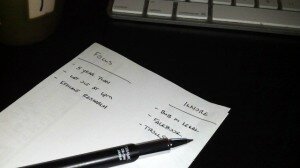 By making what you have to do clear, the tasks will seem much more approachable. But for the latter I would advise placing the bigger, more demanding projects first on the list if you don’t have much time (so that valuable time isn’t wasted on non-necessities) and a build up and down of tasks if you have plenty. At the end of the day, forever question ‘what good have I done today?’ that way you can assess whether or not you are on track and create your third post-it which will list what needs to be done tomorrow or what is left over from today.
By making what you have to do clear, the tasks will seem much more approachable. But for the latter I would advise placing the bigger, more demanding projects first on the list if you don’t have much time (so that valuable time isn’t wasted on non-necessities) and a build up and down of tasks if you have plenty. At the end of the day, forever question ‘what good have I done today?’ that way you can assess whether or not you are on track and create your third post-it which will list what needs to be done tomorrow or what is left over from today.
Barack Obama is known for spending his evenings finishing the leftovers for the day and beginning the next. This would work efficiently in any task really because leaving tasks unfinished can get quite messy; it’s far better just to start and complete a task than start multiple in this sense.
4. Be positive: If you want to be successful, surround yourself with people who are likeminded. Chances are if you’re doing your routine around more focused people they will be more supportive and less distracting. Equally keep yourself inspired; pick up a book or a paper. Not only will it educate you, but it might also change your perspective or inspire your actions for the day. But a big part of being positive is being careful and commiserative of yourself. Adapt your tasks to your body clock and give everything you all… but that counts for the necessary tasks like sleeping. When you sleep, sleep. When you work, work.
In Conclusion
Rising early helps me, but it might not help you. The most important thing to consider when making your routine is making the most of the time you have and adapting the way you go about things, to you as a person and the tasks at hand.
So remember that no-one’s routine will be the same because no-one’s success will be the same. So good luck and don’t forget to tweet us any tips you have @1lifesuccess
Wrote by Aimee Hall


